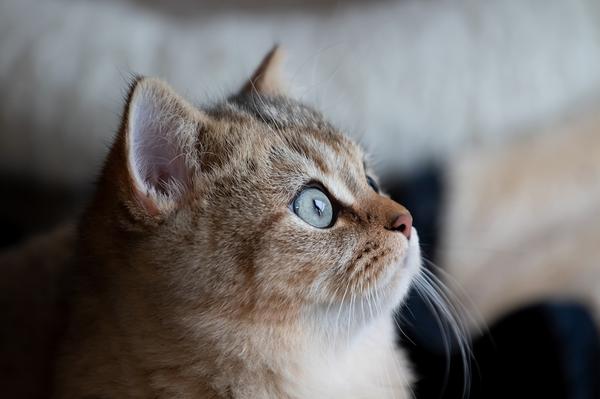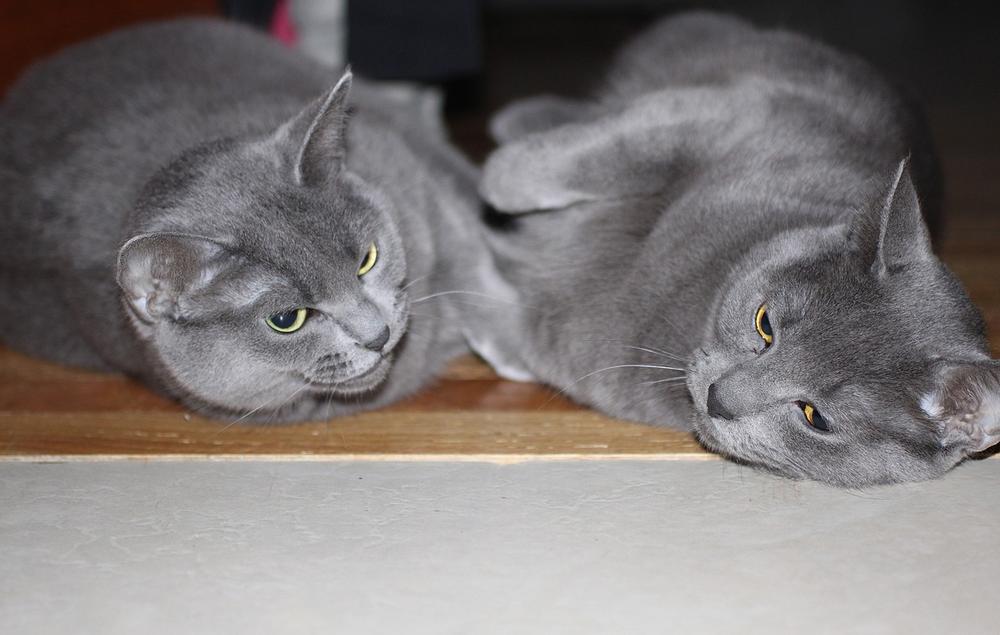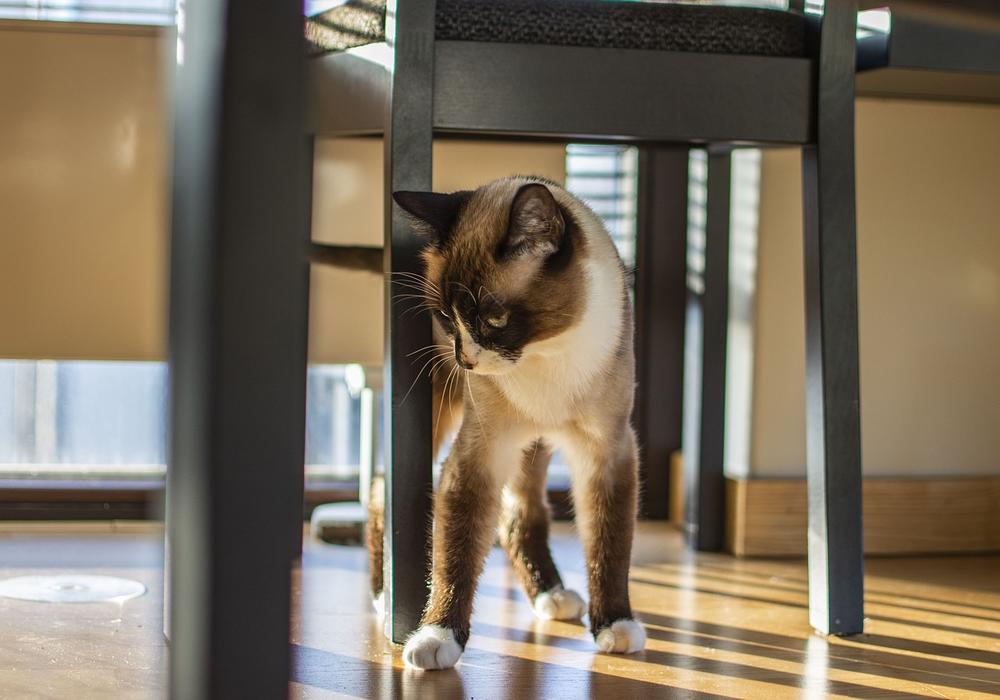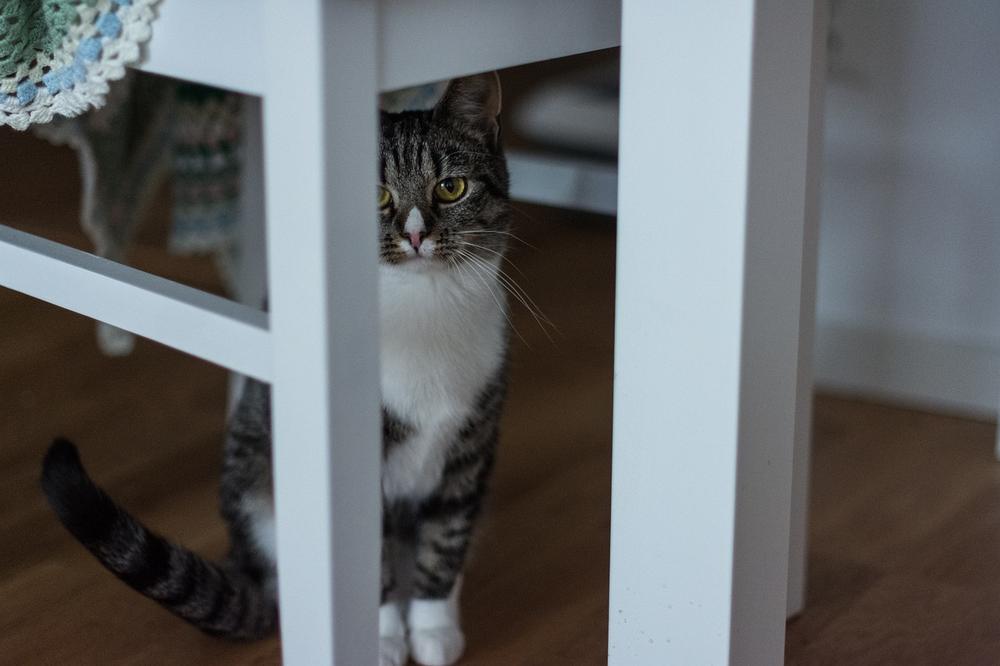Do Indoor Cats Live Longer Than Outdoor Cats? (Fact Check)

Is your feline friend your whole world?
I bet you worry about their health and happiness - every meow, every purr, every paw. 🐾
You've probably heard whispers about indoor cats living longer than their outdoor counterparts.
But is it true?
Well, let's dive into this topic together.
I promise to give you all the juicy details and answer all your burning questions.
Ready?
Let's begin our exploration!
Myth #1: Indoor Cats Live Longer Than Outdoor Cats
Contrary to popular belief, indoor cats generally have longer lives than outdoor cats. Indoor cats can live up to 10-15 years, while outdoor cats typically only reach 2-5 years. Keeping your cat indoors protects them from dangers like cars, dogs, and diseases, ensuring a safer and healthier life.
Okay, time to debunk a common misconception: indoor cats live longer than outdoor cats.
Now, let's forget about all that talk of genetic factors or special environmental conditions.
The simple truth is that cats who stay indoors generally have longer lives than their outdoor counterparts.
In fact, indoor cats can live for a good 10 to 15 years.
Meanwhile, outdoor cats, bless their adventurous souls, usually only make it to about 2 to 5 years old.
Quite the difference, don't you think?

Now, I'm not saying you have to lock your furball inside forever.
But if you're looking for a guaranteed way to extend your feline friend's life and keep them as healthy as can be, then indoor living is definitely the way to go.
An indoor life means your cat will avoid all the hazards outside like fast-moving cars, mean-spirited dogs, and nasty diseases.
It's a safer and cozier alternative, giving your furry buddy everything they need to thrive.
So, take this into consideration when deciding whether to grant your whiskered companion access to the great outdoors or keep them snuggled up safe inside with you.
Main points I'll expand upon further down this article:
- Factors that impact a cat's life expectancy include the risks and benefits of outdoor access.
- Outdoor cats face dangers such as traffic accidents and infectious diseases.
- Safety and health should be considered when deciding to keep cats indoors or outdoors.
- Training and enrichment, like clicker training and silver vine, are important for indoor cats' well-being.
- Mental stimulation through playtime and interactive toys can extend an indoor cat's lifespan.
- Regular vet check-ups and a healthy diet are crucial for both indoor and outdoor cats.
- Indoor cats typically live 13 to 17 years, but various factors influence this.
- Preventative measures like spaying/neutering and vaccinations can extend a cat's lifespan.
- Common health issues for indoor cats include obesity, diabetes, and respiratory diseases.
- Maintaining a well-rounded diet and healthy weight is important for indoor cats' longevity.
But what can you do besides keeping your cat indoors to ensure they live a long and healthy life?
Well, it all comes down to taking proper care of them, both physically and mentally.
Let me dive deeper into the essential factors that can influence your feline companion's lifespan...
Factors That Impact Life Expectancy
You should take your cat to the vet regularly and get them vaccinated to prevent health issues that could make their life shorter.
But there's more - let's talk about other things that can affect how long a cat lives.
- If your cat roams freely outdoors, they're at risk of getting hit by cars, catching infectious diseases, or getting parasites.
- Before deciding if your cat should live indoors or outdoors, think about how safe and healthy each option is.
- Indoor cats can have a better quality of life with training and enrichment. Stuff like clicker training or silver vine can make a big difference.
- It's important to keep indoor cats mentally stimulated. Playtime, interactive toys, and food puzzles are great ways to do that.
- Oh, and don't forget exercise! Regular physical activity can help your indoor cat live longer.
- Typically, indoor cats live between 13 and 17 years. But different things might affect how long they actually live.
- Preventative measures like spaying/neutering and vaccinations really make a difference in extending a cat's life.
- Indoor cats are more likely to have health problems like obesity, diabetes, cancer, metabolic disease, respiratory disease, heart disease, and hairballs.
- Making sure indoor cats have a good diet and stay at a healthy weight is super important for helping them live longer.
If you understand these things, you'll give your cat their best chance at a long and healthy life. 😺
To give your cat the best chance at a long and healthy life, there are several factors to consider.
Regular vet visits and vaccinations are crucial, but let's not forget about the other things that can impact their lifespan.
Factors like allowing your cat to roam freely outdoors, indoor enrichment and training, mental stimulation, exercise, spaying/neutering, and maintaining a healthy weight all play a significant role.
However, I understand if you still have questions and are curious to learn more.
That's why I highly recommend checking out my article on Do Black Cats Live Longer.
It dives into an interesting debate surrounding black cats and their lifespan.
Trust me, you'll find it intriguing.
How Long Do Cats Live Indoors?
Indoor cats can live up to 15 years, sometimes even longer.

However, there are rare instances where they have surpassed the 20-year mark. Creating a safe and enriched indoor environment for your feline companion has significant implications. By fulfilling their physical and mental needs, you pave the way for them to thrive and enjoy an extended lifespan.
These exceptional cases emphasize the positive effects of providing an ideal habitat for cats.
So, make sure to cater to their every need, granting them the opportunity to age gracefully and live longer, more fulfilling lives.
Lifespan Variations Among Popular Cat Breeds
| Cat Breed | Lifespan Variation from Indoor to Outdoor Cats |
|---|---|
| Siamese | Known to have a longer lifespan when kept indoors due to reduced exposure to external dangers and diseases. |
| Maine Coon | Generally has a longer lifespan when kept indoors, as they are protected from outdoor hazards and potential accidents. |
| Sphynx | Tends to have a shorter lifespan when kept outdoors, primarily due to their vulnerability to extreme weather conditions and increased risk of injuries. |
| Mixed Breed | Generally known to have longer lifespans, irrespective of their living environment, but indoor cats typically have more consistent access to a controlled and safer environment. |
| Domestic Short-haired | Like mixed breed cats, they tend to have longer lifespans overall, with indoor cats benefiting from a lower exposure to outdoor hazards. |
Feline lifespan varies with breeding.
Cats may seem the same, but different breeds have different lifespans and genetics matter.
Introducing Crème Puff, a cat who lived an incredible 38 years. She holds the Guinness World Records as the oldest recorded cat ever. Hard to believe, right?
Longer than some humans!
Most cats live between 13 and 17 years, but there are exceptions.
Take Siamese cats for instance. These fancy felines can live up to a whopping 15-20 years!
Now let's discuss Maine Coons.
These giants typically reach their early 20s. Not only big in size, but they also outlive many others.
On the other hand, Sphynx cats have shorter lives, averaging around 12 to 15 years.

Not as long, but still cute.
And guess what?
Mixed-breed cats actually have the potential to live longer than purebreds. Having a mix of genes gives them an advantage.
So if you've got a mutt, count yourself lucky.
Now you know that different breeds bring different lifespans.
From long-lasting Siamese to majestic Maine Coons and adorable mixed-breeds, each breed tells its own tale.
If you're curious about how long a cat can survive locked in a shed, you might find my blog post on How Long Can a Cat Survive Locked in a Shed helpful. Discover the surprising truth about feline endurance in confined spaces.
But what about the different stages of a cat's life?
How can we support their well-being as they age?
Let's explore the common age-related changes and adjustments you can make to ensure your furry friend has a quality life - and possibly even prolong their lifespan!
What Are Life Stages of a Cat?
Cats go through four life stages:
Kittenhood, adulthood, senior years, and the geriatric stage. Each stage has its own unique changes.
When cats are young, they grow quickly. Just like human children, they are full of energy and love to play.
To keep them healthy, make sure to give them the right food and spend time playing interactively with them.
As they become adults, cats become more independent. They might start marking their territory and showing interest in mating.
It's recommended to have them spayed or neutered during this time.
Once cats reach their senior years, they slow down.
They sleep more, their appetite may change, and they can develop problems with their joints.
Regular visits to the vet and a balanced diet can support their aging bodies.
In the geriatric stage, things change even more.
Cats become less active and their cognitive functions may decline.
It becomes crucial to create a comfortable environment for them and provide mental stimulation.
Remember to closely monitor your cat's behavior and health as they age.
By adjusting their nutrition, ensuring regular exercise, and giving them proper veterinary care, you can ensure they enjoy the best quality of life.
So, always keep an eye on your furry friend as they move through different life stages!
And that wraps up today's article.
If you wish to read more of my useful articles, I recommend you check out some of these: How to Keep Cats Cool in Summer Without Ac, Can You Travel With a Pregnant Cat, How Long Can a Cat Go Without Water, and Do Cats Shed More When Stressed Scared
Talk soon,
-Sarah Davis